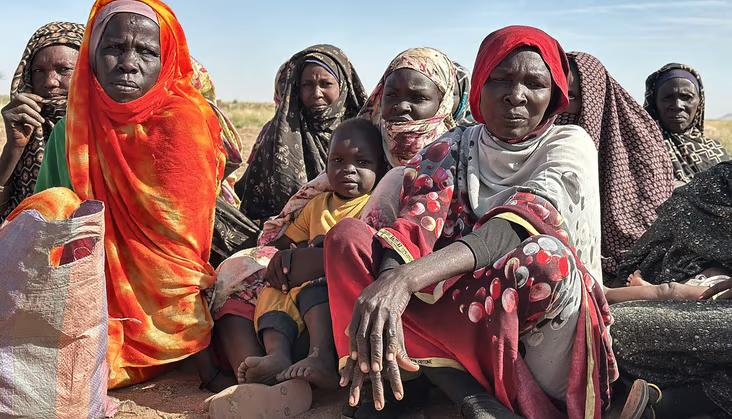As conflict in Sudan deepens, survivors and rights activists are urging the UK to respond, warning inaction risks emboldening war criminals and abandoning victims to silence.
A coalition of Sudanese refugees, human rights defenders and civil society groups has called on the UK to investigate Sudan’s Rapid Support Forces for genocide and war crimes, following the submission of a harrowing 142-page dossier to Scotland Yard on Tuesday.
The legal submission, prepared by international lawyers, outlines allegations of war crimes, crimes against humanity and genocide committed by Sudan’s Rapid Support Forces (RSF), a paramilitary group led by General Mohamed Hamdan Dagalo, widely known as Hemeti. The call for action comes as Sudan’s brutal war, now in its third year, continues to displace millions and inflict mass suffering, especially in Darfur and Khartoum.
The letter, signed by more than 100 individuals and organisations, calls on the UK to investigate RSF leaders under universal jurisdiction laws, share the evidence with the International Criminal Court (ICC), and support global accountability measures. The signatories, among them human rights lawyers, journalists, doctors, women’s rights activists, displaced civilians and members of the Sudanese diaspora, warn that without coordinated international action, the atrocities will continue unchecked and survivors risk being permanently denied justice.
What’s in the dossier?
The 142-page document lays out “harrowing evidence” of atrocities allegedly committed by the RSF since the outbreak of war in April 2023. It documents:
Massacres of civilians in Darfur and other regions, often targeting non-Arab ethnic groups in what survivors and rights groups say amount to ethnically driven killings.
Systematic sexual violence, including the gang rape of women and girls, and the abduction of civilians for use as sex slaves, tactics described as deliberate tools of war.
Starvation as a weapon, with RSF fighters accused of looting humanitarian aid, destroying food supplies, and blockading access to essential services.
Evidence of international complicity, pointing to unnamed foreign actors believed to have provided material, logistical, or political support to RSF forces despite widespread reports of abuse.Why is the UK involved?
The dossier was submitted to the UK’s War Crimes Unit, part of the Metropolitan Police’s Counter Terrorism Command, which has the power to investigate serious international crimes under the principle of universal jurisdiction. This legal doctrine allows the UK to investigate and prosecute crimes such as genocide, war crimes and crimes against humanity, even if committed outside its borders, where there is a connection to the UK through victims, suspects or territory.
The UK is home to a significant Sudanese diaspora, including survivors of the current conflict and past atrocities in Darfur. Some have provided testimony or evidence in support of the submission. Campaigners also warn that RSF commanders or their affiliates could seek haven in the UK or elsewhere in Europe if no action is taken.
Human rights advocates say the UK has both a legal responsibility and a moral obligation to act, not just to investigate alleged RSF atrocities, but to ensure that those responsible do not enjoy impunity or travel freely without consequence.
This may be the most serious legal challenge yet to the RSF’s global impunity. If the UK launches an investigation or pursues charges, it would signal a major step in the international accountability process and could help pressure other governments to act.
The legal push comes months after the US formally designated atrocities by the RSF as genocide in late 2024. Yet despite what campaigners describe as “mounting evidence,” the International Criminal Court has not indicted any senior RSF leaders to date.
“Justice must not die in a file drawer. The world cannot look away – again,” the joint letter stated.

